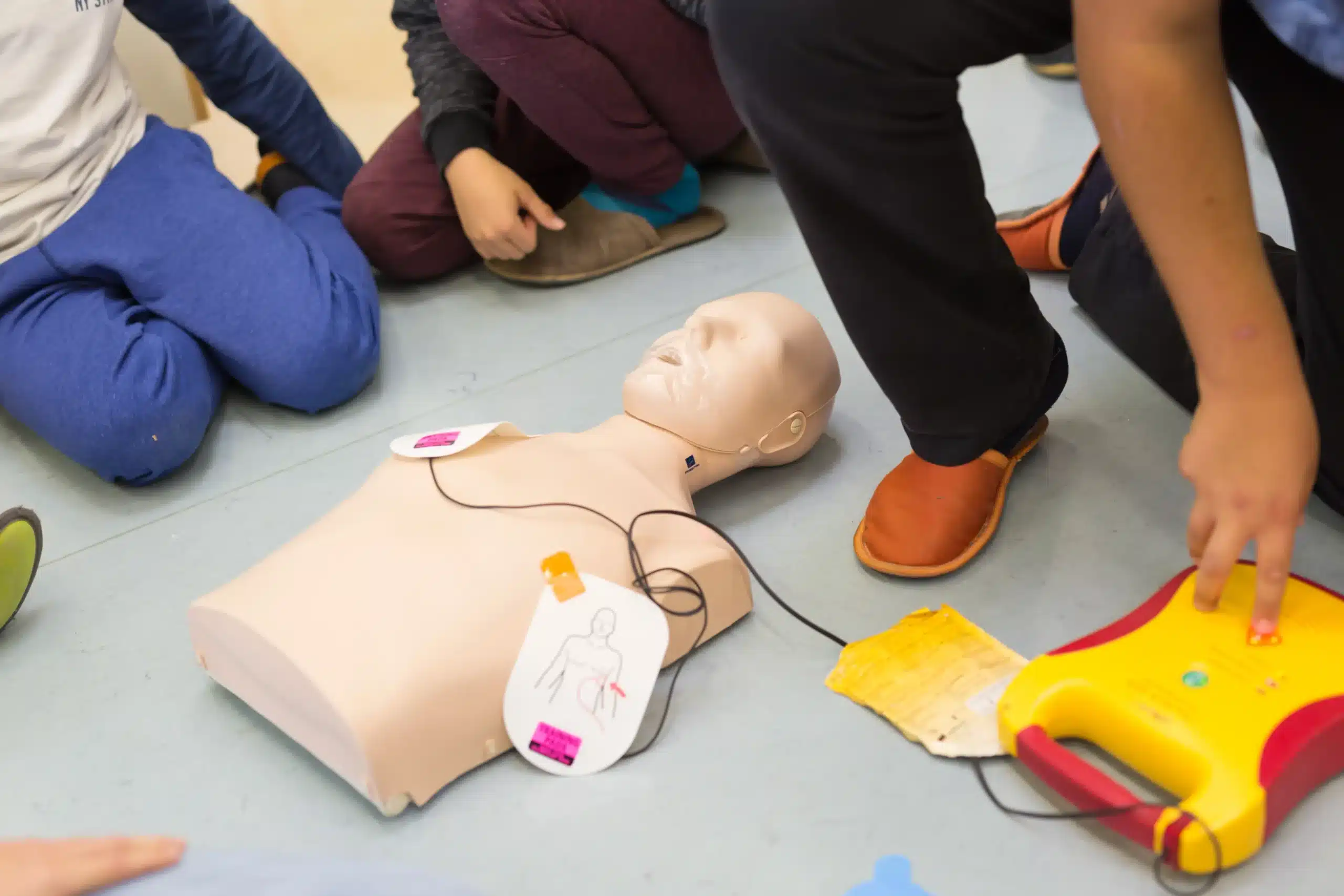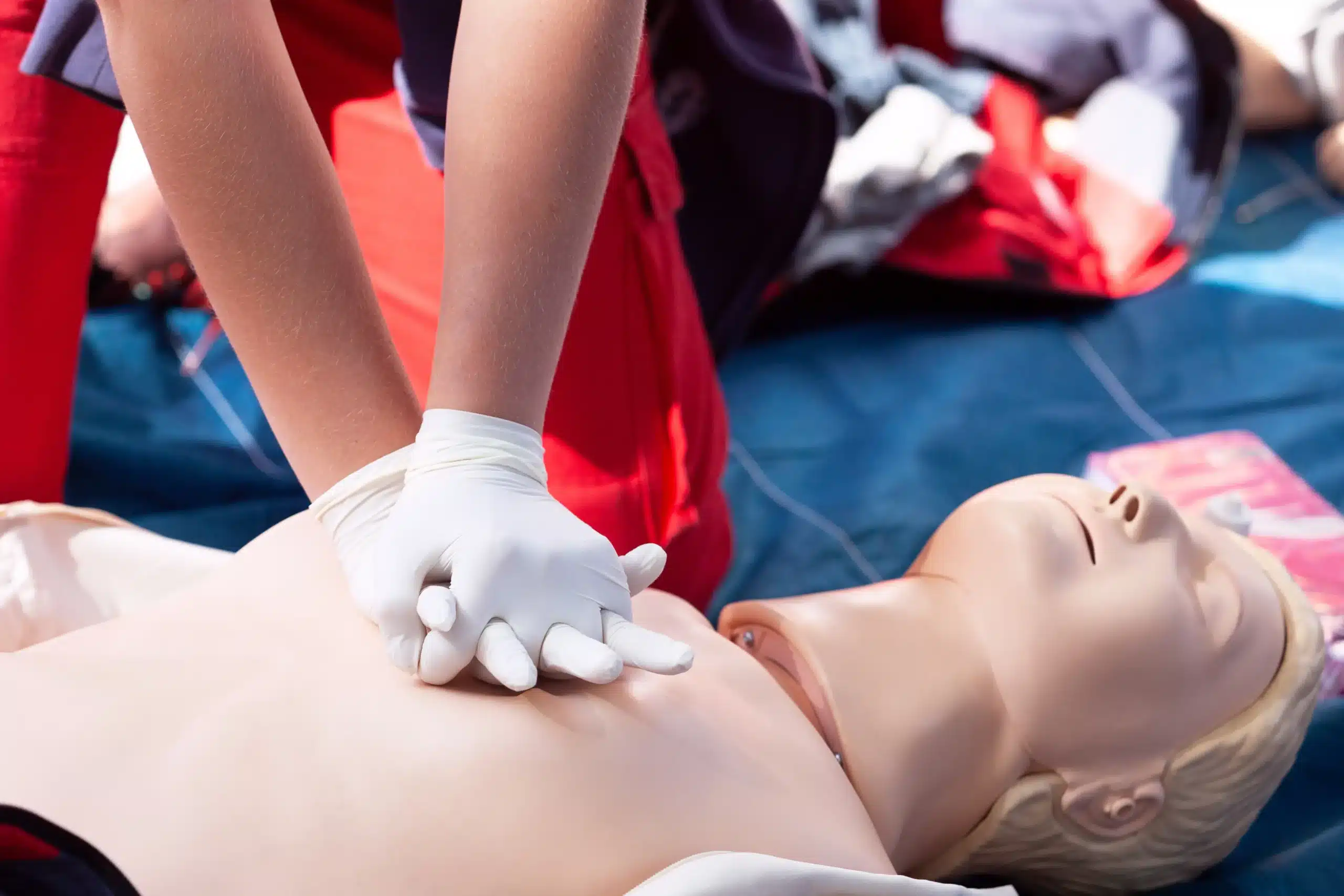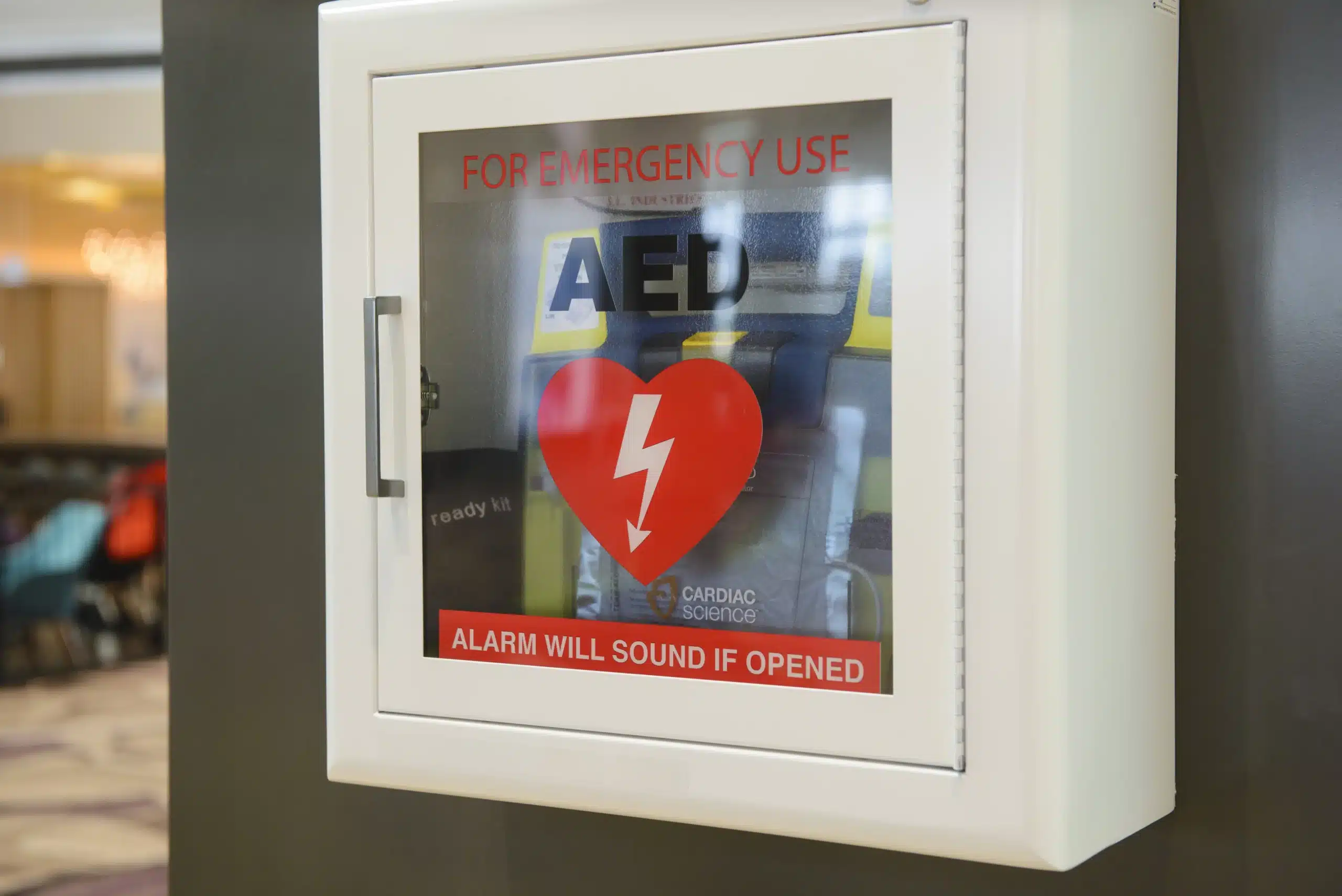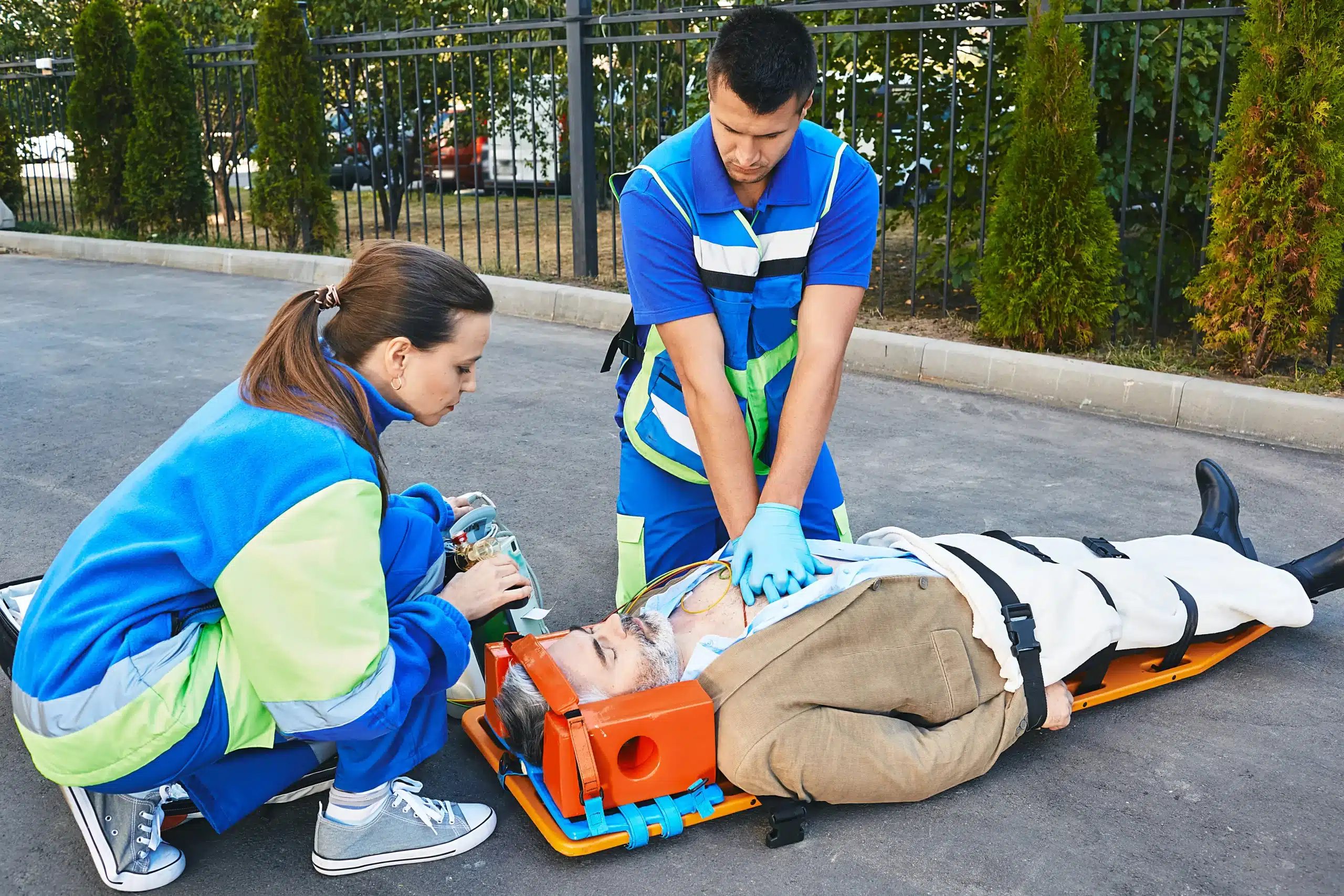Looking for a flexible and effective way to get PALS certified in Daly City? PALS HeartCode offers a blended learning approach that fits your busy schedule. This comprehensive program combines online modules with hands-on skills sessions, allowing you to learn at your own pace and then demonstrate your proficiency in person. This guide provides a complete overview of PALS HeartCode in Daly City, including what the course covers, where to find local training centers, how much it costs, and who should consider enrolling. We’ll also delve into the benefits of blended learning and offer practical tips to prepare you for success.
Key Takeaways
- PALS HeartCode blends online learning with hands-on practice: This flexible approach lets you learn essential concepts at your own pace online, then apply those skills in a practical, in-person session.
- The course equips you with essential pediatric emergency skills: You’ll learn to manage a range of pediatric emergencies, from basic life support to more complex interventions, with a focus on effective teamwork and quick decision-making.
- Certification is a simple two-step process: Complete the self-paced online modules, then schedule a short in-person skills session to demonstrate your proficiency and receive your PALS provider card.
What is PALS HeartCode?
PALS HeartCode is a blended learning course combining online instruction with hands-on skills practice and testing. It equips healthcare providers with the knowledge and skills to respond to pediatric emergencies. This approach lets you learn at your own pace online and then demonstrate your skills in person. It’s a flexible and effective way to get PALS certified.
Key Course Components
The PALS HeartCode course has two main parts: self-paced online learning and in-person skills testing. The online portion uses interactive modules, simulations, and assessments to teach essential concepts and decision-making. This self-directed learning experience uses an adaptive algorithm, adjusting to your individual learning pace and performance as you work through scenarios and receive feedback. The online portion of the PALS HeartCode training provides a certificate of completion required for the in-person session.
Essential Skills and Knowledge
PALS HeartCode covers a range of critical skills, beginning with child and infant Basic Life Support (BLS). You’ll learn to recognize and manage respiratory emergencies, shock, and cardiopulmonary arrest in infants and children. The PALS course emphasizes high-performance team dynamics, preparing you to work effectively within a resuscitation team. The curriculum covers effective communication, coordinated interventions, and post-resuscitation care. You’ll also practice essential skills like vascular access and rhythm identification during the hands-on portion.
PALS HeartCode in Daly City: Format and Structure
This section explains how the PALS HeartCode blended learning format works.
Learn Online
The PALS HeartCode course begins with a web-based, self-directed program. This online portion covers essential knowledge and skills for recognizing and preventing cardiopulmonary arrest in infants and children. The online format lets participants move through the material at their own pace, making it a flexible option for busy professionals. You can review specific topics as needed and fit the training around your schedule. For more information, the Children’s Hospital of Philadelphia offers details on the PALS HeartCode online learning experience.
Test Your Skills In-Person
After completing the online modules, you’ll attend an in-person skills session. This hands-on training typically lasts about five hours, including breaks. This session focuses on applying the knowledge you gained online to practical scenarios. You’ll work with instructors and other students to practice your skills. The American Heart Association provides details on PALS course options, including information on the blended learning format.
Benefits of Blended Learning
The HeartCode PALS program uses a personalized adaptive algorithm to tailor the learning experience to each student. This means the program adapts to your performance and confidence level, creating a learning path specific to your needs. This blended learning approach offers flexibility and helps students master the material effectively. You can learn at your own pace online and then demonstrate your skills in person. This guide on HeartCode PALS offers additional insights into the benefits of this format.
Find PALS HeartCode Classes in Daly City
Local Providers and Locations
Safety Training Seminars
Safety Training Seminars, a woman-owned American Heart Association (AHA) Training Center, offers high-quality PALS HeartCode training in Daly City, CA. They provide various AHA courses, including BLS, ACLS, and First Aid. Known for their excellent customer service, they are a convenient option for those in the area. Learn more about their PALS HeartCode program on their website.
Daly City CPR Classes
Daly City CPR Classes also provides PALS HeartCode training, along with other AHA courses such as BLS and ACLS. They prioritize affordability and convenience for students seeking certification. Visit their website for course details and schedules.
Scheduling Options
Finding a PALS HeartCode course that fits your schedule is easy, thanks to the flexible options offered by both Safety Training Seminars and Daly City CPR Classes. With courses running seven days a week, you can choose a time that works best for you. Explore their course schedules to find the perfect fit. This commitment to accessibility makes high-quality PALS training readily available in Daly City.
Cost of PALS HeartCode in Daly City
The cost of PALS HeartCode training in Daly City depends on a few things: the training provider, included materials, and whether you choose online learning with in-person skills testing or a completely in-person format. Understanding these factors will help you find a course that fits your budget.
Average Course Price
PALS HeartCode certification has two parts: online, self-paced learning and an in-person skills session. This blended learning style offers flexibility and often affects the total cost. The online portion usually has a separate fee, with an additional fee for the hands-on skills check. Contacting providers like Safety Training Seminars directly is the best way to get accurate pricing.
Discounts and Promotions
Many training centers offer discounts for groups, students, or returning customers. Check with different providers, including Daly City CPR Classes, to compare prices and see what promotions are running. Always ask about potential discounts when you inquire about courses.
What Your Fee Covers
Your PALS HeartCode fee typically covers online course materials, access to the learning platform, the in-person skills session, and your certification card (after successful completion, of course!). Some providers might also include extras like study guides or practice exams. Safety Training Seminars offers a range of courses, including BLS, ACLS, and PALS certifications. Before registering, clarify with your chosen provider exactly what’s included to avoid surprises.
Low Price Guarantees
Some CPR training providers, like Safety Training Seminars, offer a low-price guarantee, meaning they’ll match or beat competitor pricing in the area. If you want the most affordable option, a low-price guarantee can give you peace of mind. Make sure to read the fine print to understand how the guarantee works.
Who Should Take PALS HeartCode?
Healthcare Professionals Who Benefit
The Pediatric Advanced Life Support (PALS) HeartCode course is ideal for healthcare providers who respond to emergencies involving infants and children. This includes personnel working in emergency response, emergency medicine, intensive care, and critical care units. Physicians, nurses, paramedics, and other professionals needing a PALS completion card will find this course beneficial. The PALS HeartCode program offers a blended learning experience, combining online modules with in-person skills practice. This format provides a convenient alternative to traditional classroom learning for initial certification or recertification. Safety Training Seminars offers this valuable training.
Enrollment Prerequisites
Before enrolling in PALS HeartCode training, ensure you’re proficient in child and infant basic life support (BLS). The course includes an assessment of these essential skills. The hands-on portion involves participation in learning stations focused on key areas like respiratory issues, rhythm disturbances, and vascular access. While testing on these specific case scenarios might be optional depending on the provider, practicing these skills is crucial. Confirm the specific requirements with your chosen training center, such as Safety Training Seminars, to prepare effectively. For more details about the online portion and certification requirements, visit the American Heart Association website.
Your Online Learning Experience
The online portion of the PALS HeartCode course offers flexibility and a focused learning environment. You’ll work through the curriculum at your own pace, revisiting challenging concepts as needed. This blended learning approach combines online instruction with an in-person skills session, giving you the best of both worlds.
Self-Paced Modules and Content
The PALS HeartCode online curriculum is divided into modules covering essential pediatric life support knowledge and skills. The program adapts to your learning style, allowing you to progress comfortably. This self-directed PALS HeartCode training covers a range of topics, from recognizing cardiopulmonary arrest in infants and children to implementing appropriate interventions.
Interactive Simulations and Assessments
Interactive simulations are a core component of the online learning experience. These simulations use eSimulation technology, placing you in virtual healthcare settings to assess and treat patients. This realistic practice helps you develop critical thinking skills and build confidence. Throughout the program, assessments gauge your understanding of the material.
Practice Real-Time Decision-Making
The PALS HeartCode program emphasizes real-time decision-making through simulated patient cases. You’ll work through various in-hospital scenarios, making critical choices that impact patient outcomes. This practical application of knowledge reinforces learning and prepares you for real-world situations. The program presents twelve in-hospital patient cases and a team dynamics lesson, providing ample opportunity to practice your skills.
In-Person Skills Testing: What to Expect
After completing the online portion of the PALS HeartCode course, you’ll move on to the in-person skills session. This hands-on component allows you to demonstrate your skills and receive your PALS certification. Here’s what you can expect:
Practice with Instructors
The in-person skills session focuses on practical application and is led by certified PALS instructors. You’ll practice essential skills like child and infant basic life support (BLS). Instructors provide guidance and feedback, ensuring you’re comfortable performing these critical procedures. While the PALS Course includes practice scenarios covering respiratory emergencies, rhythm disturbances, and vascular access, testing on these scenarios is optional. This session emphasizes building proficiency and confidence in your abilities.
Equipment and Scenarios
During the in-person skills test, you’ll work with the same equipment used in real-life pediatric emergencies. This includes mannequins, airway management tools, and other essential supplies. The focus is on translating your online learning into real-world practice. Because the online portion of the HeartCode PALS course uses a personalized adaptive algorithm, your learning path is tailored to your individual progress and confidence level. This prepares you for the hands-on skills session.
High-Performance Team Dynamics
PALS emphasizes the importance of teamwork in pediatric emergencies. The in-person skills session often involves simulated scenarios requiring collaboration and communication with other healthcare providers. This helps you develop the high-performance team dynamics crucial for effective patient care. The PALS Provider Course aims to equip healthcare providers with the skills and knowledge to recognize and intervene in pediatric emergencies, ultimately improving patient outcomes.
Get Certified: Process and Validity
Steps to PALS Certification
Becoming PALS certified is a straightforward two-step process. You’ll begin with the online PALS HeartCode program, a self-directed learning experience covering essential PALS concepts and allowing you to practice your clinical decision-making skills in simulated pediatric emergencies. After completing the online modules, you’ll schedule an in-person skills session with an American Heart Association Training Center like Safety Training Seminars. This hands-on session focuses on practicing essential skills and demonstrating competency under the guidance of certified instructors. Upon successful completion of both the online and in-person components, you’ll receive your PALS provider card the same day. Plan for the in-person skills check to take approximately five hours with breaks, or closer to four hours and fifty minutes without breaks (Source: PALS Heartcode Certification Course in Daly City | happeningnext.com).
Renewal Requirements
Your PALS certification is valid for two years. To maintain your certification, complete a PALS renewal course before it expires. This refresher course reinforces core concepts and ensures you’re familiar with the most current pediatric advanced life support guidelines. Renewal also involves a skills check, including demonstrating competency in child and infant Basic Life Support (BLS) skills, a fundamental aspect of PALS. Staying current with your PALS certification demonstrates your ongoing commitment to providing high-quality care (Source: PALS Course Options – American Heart Association | heart.org).
Prepare for Your PALS HeartCode Course
So, you’re ready to take the PALS HeartCode course? Great! This blended learning program combines online coursework with in-person skills testing, and a little prep work goes a long way.
Study Materials and Resources
The American Heart Association (AHA) designed PALS HeartCode with a personalized learning experience in mind. The online portion, HeartCode PALS, adapts to your progress and understanding of the material. This means the program focuses on the areas where you need more practice, making your study time more efficient. You’ll work through at least six of the nine PALS Plus Advanced eLearning modules before attending your hands-on skills session with an AHA PALS Instructor. Check the PALS Plus FAQ.pdf) for more details.
Tips for Success
Want to ace your PALS HeartCode training? Brush up on your child and infant Basic Life Support (BLS) skills—you’ll be tested on these. Consider taking a BLS course if you need a refresher. The hands-on portion of the course includes practice at three learning stations: Respiratory, Rhythm Disturbances, and Vascular Access. Take advantage of these opportunities to hone your skills. You can also ask your instructor about optional case scenario testing during the in-person session. Plan for about five hours for the hands-on portion, which includes breaks. This allows ample time to practice those all-important high-performance team dynamics and individual skills that are so crucial in pediatric emergencies. The AHA website offers further information on PALS course options.
Common Concerns
We understand you might have some questions about the PALS HeartCode course. Here are a few common concerns we address to help you feel prepared:
Course Structure Questions
The PALS HeartCode course blends online learning with in-person skills practice. You’ll first complete the online portion at your own pace, covering essential concepts and engaging in interactive simulations. After finishing the online modules, you’ll schedule a hands-on skills session with a certified instructor. This session allows you to demonstrate your skills and receive personalized feedback. You’ll receive your American Heart Association PALS provider card the same day you complete your skills check.
Certification Validity
Your PALS Provider Course Completion eCard is valid for two years. This means you’ll need to recertify before the expiration date to maintain your PALS credentials. Staying current with your certification ensures you have the most current life-saving techniques.
Instructor Qualifications
Our instructors are experienced healthcare professionals certified by the American Heart Association. They undergo comprehensive training and maintain their skills through continuing education. During your skills session, instructors will assess your competency in child and infant basic life support (BLS). You’ll also practice case scenarios at various learning stations, covering topics like Respiratory issues, Rhythm Disturbances, and Vascular Access. While practicing these scenarios is required, testing on them is optional. Our instructors create a supportive learning environment where you can confidently develop your skills.
Related Articles
- HeartCode PALS San Mateo: Your Guide to Certification – San Mateo CPR Classes
- AHA PALS Classes in San Mateo, CA – San Mateo CPR Classes
- NRP Certification in Daly City: Your Guide – San Mateo CPR Classes
- RQI in San Mateo: Your Guide to Flexible CPR Training – San Mateo CPR Classes
- AHA Certification in Daly City: Your Complete Guide – San Mateo CPR Classes
Frequently Asked Questions
What is the difference between PALS HeartCode and a traditional PALS course?
PALS HeartCode blends online learning with a shorter, in-person skills session, offering more flexibility than a traditional classroom course. You’ll learn the same material and receive the same certification, but you can complete the online portion at your own pace.
How long does it take to complete the PALS HeartCode course?
The online portion’s length depends on your learning speed, as it’s self-paced. The in-person skills session typically takes about five hours, including breaks.
What if I don’t have current BLS certification?
You should be proficient in child and infant BLS before starting PALS HeartCode. Many training centers, including those mentioned in this post, offer BLS certification courses. Check with your chosen provider to confirm their requirements.
How much does PALS HeartCode training cost?
The cost varies depending on the training center and what’s included. Contact the providers directly for the most up-to-date pricing information. Don’t forget to ask about potential discounts!
How long is my PALS certification valid, and how do I renew it?
PALS certification is valid for two years. You’ll need to take a PALS renewal course, which includes a skills check, to maintain your certification.






